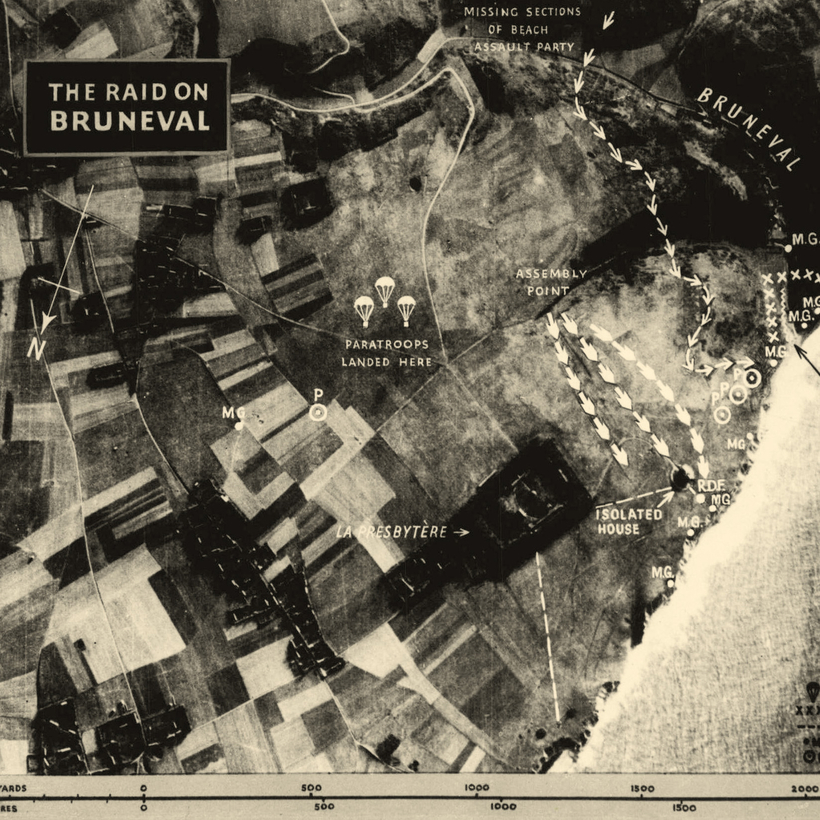As the men of 2 Para approached Bruneval, they sang songs like “The Rose of Tralee.” German anti-aircraft fire provided an unwelcome backbeat. A water bottle, filled with rum, was passed round. The date was February 27, 1942, the target a German radar post on the Normandy coast. The plan was to get in, get out and go home, with breakfast waiting in Portsmouth. A mere 120 men took part in this operation, yet the stakes were enormous. “This was no grand armada,” Major John Frost, the commander, reflected. “We were so very much by ourselves.”
“I felt as though I was acting in a play,” another soldier wrote. There was indeed something weirdly theatrical about Operation Biting, a dissonant blend of action and farce. The stage was a square mile of the French coast, the principal actors larger than life. Or perhaps that’s just the way that Max Hastings has chosen to tell this story. He’s a master of drama, a writer intimately familiar with the mind of the soldier — “All my books aspire to tell ‘people’ stories, because these are what history is about.” Yes indeed. There are few things in life more dependable than a war story told by Hastings.


